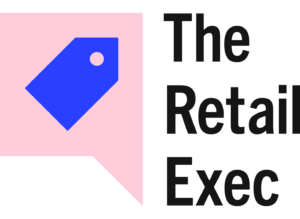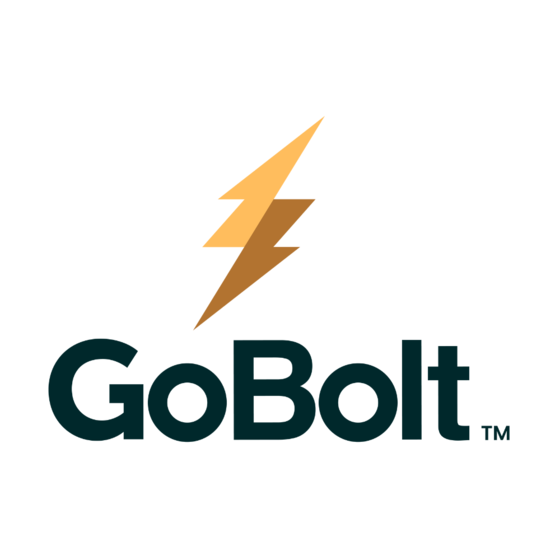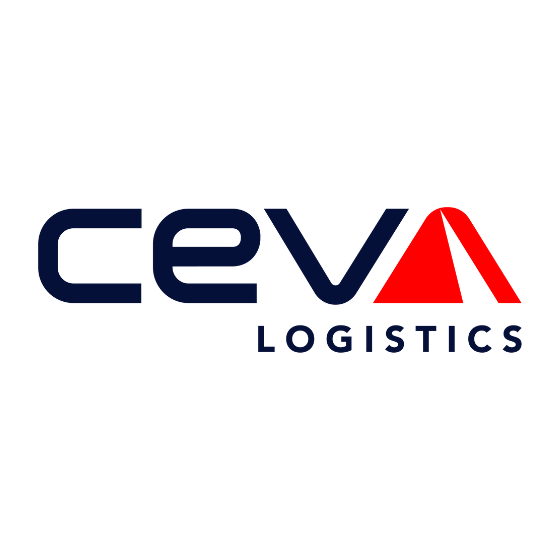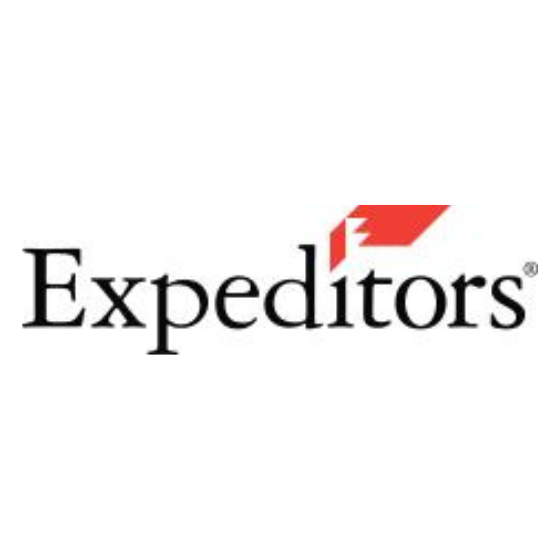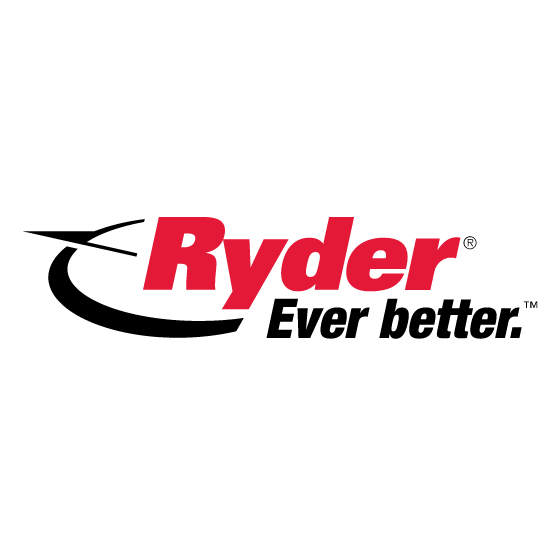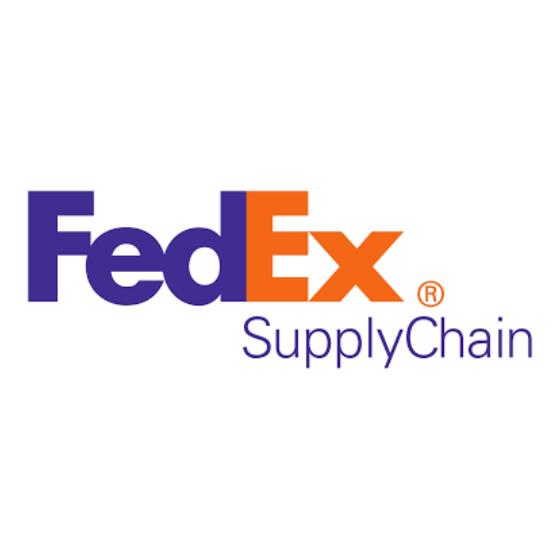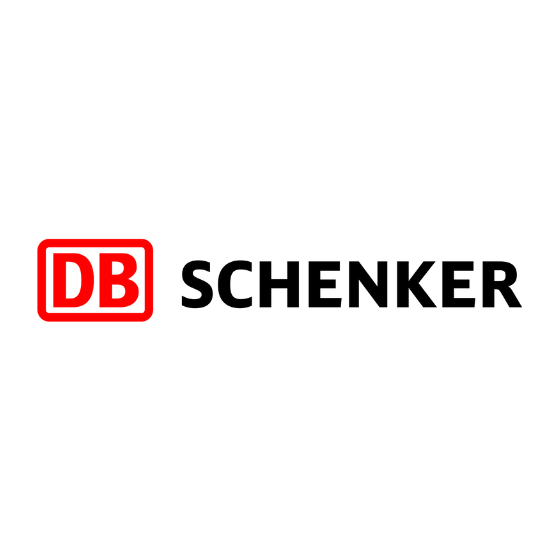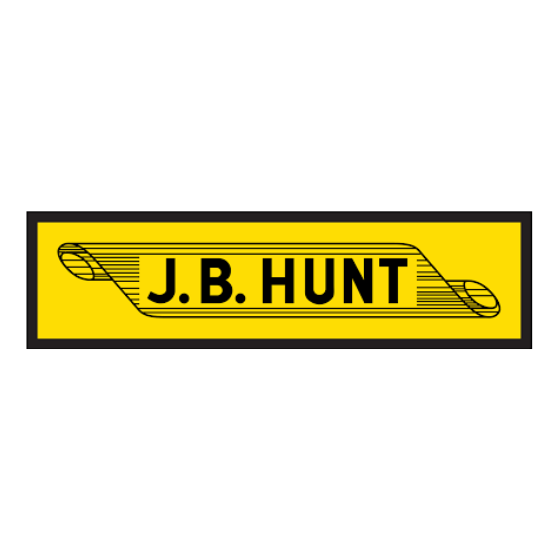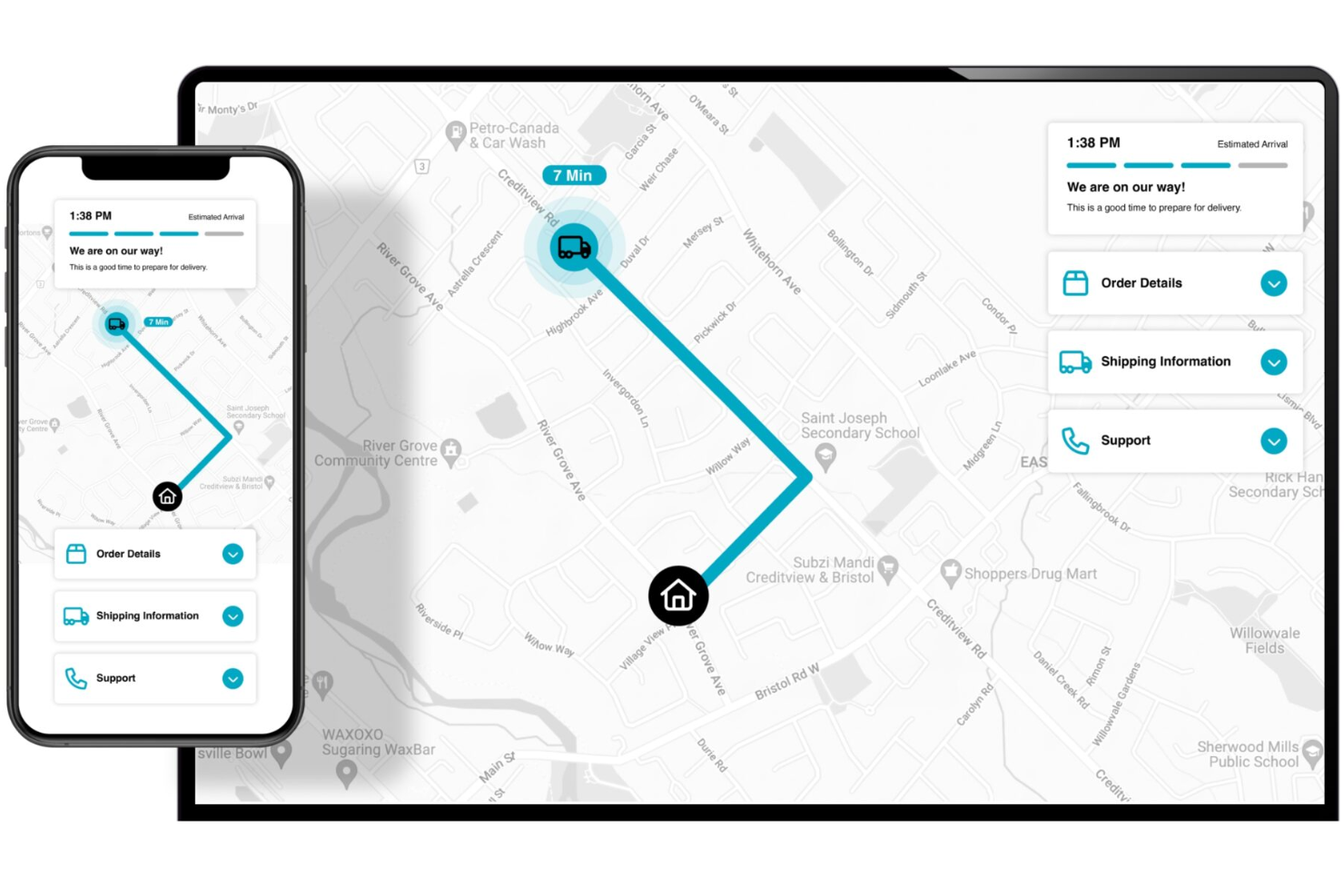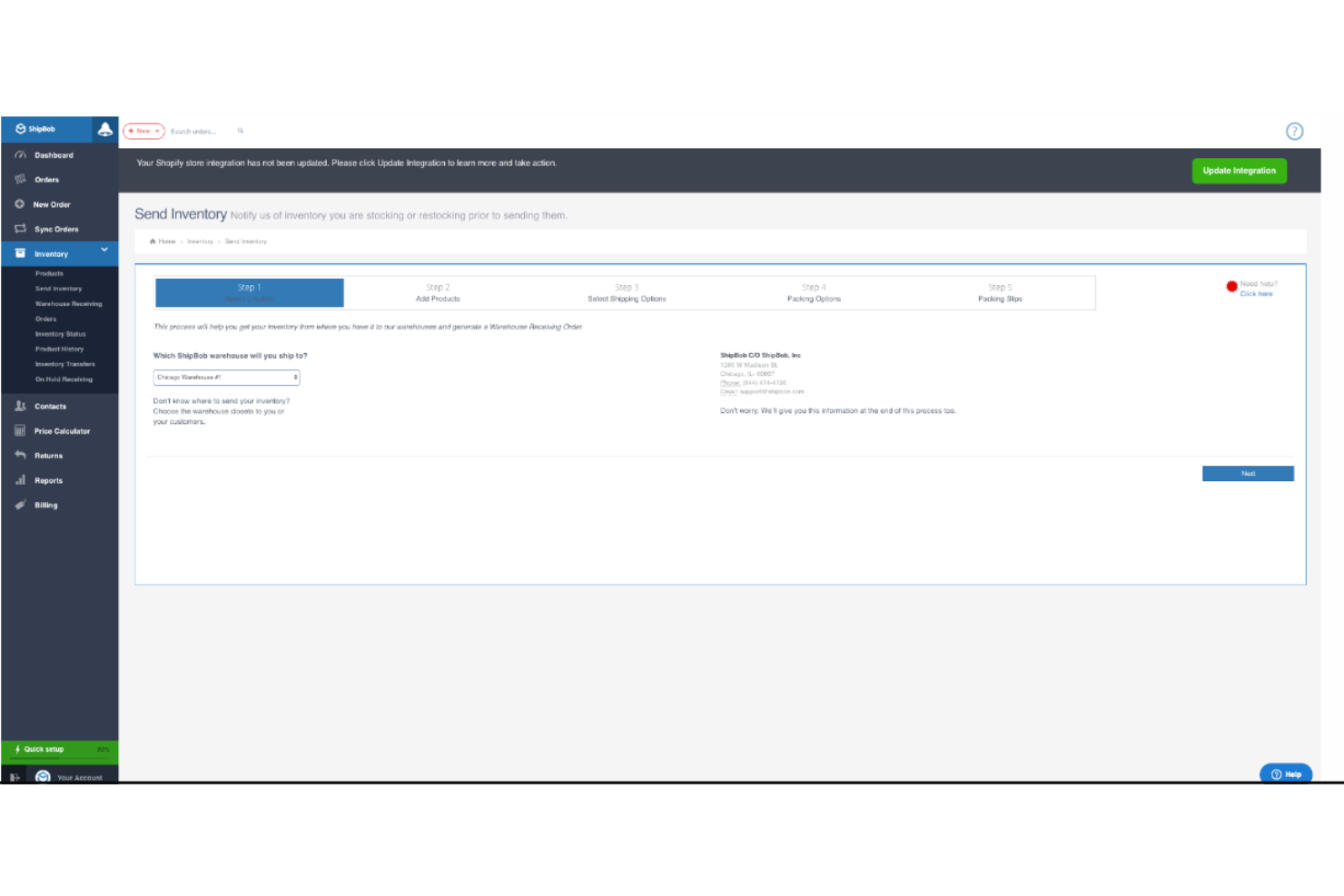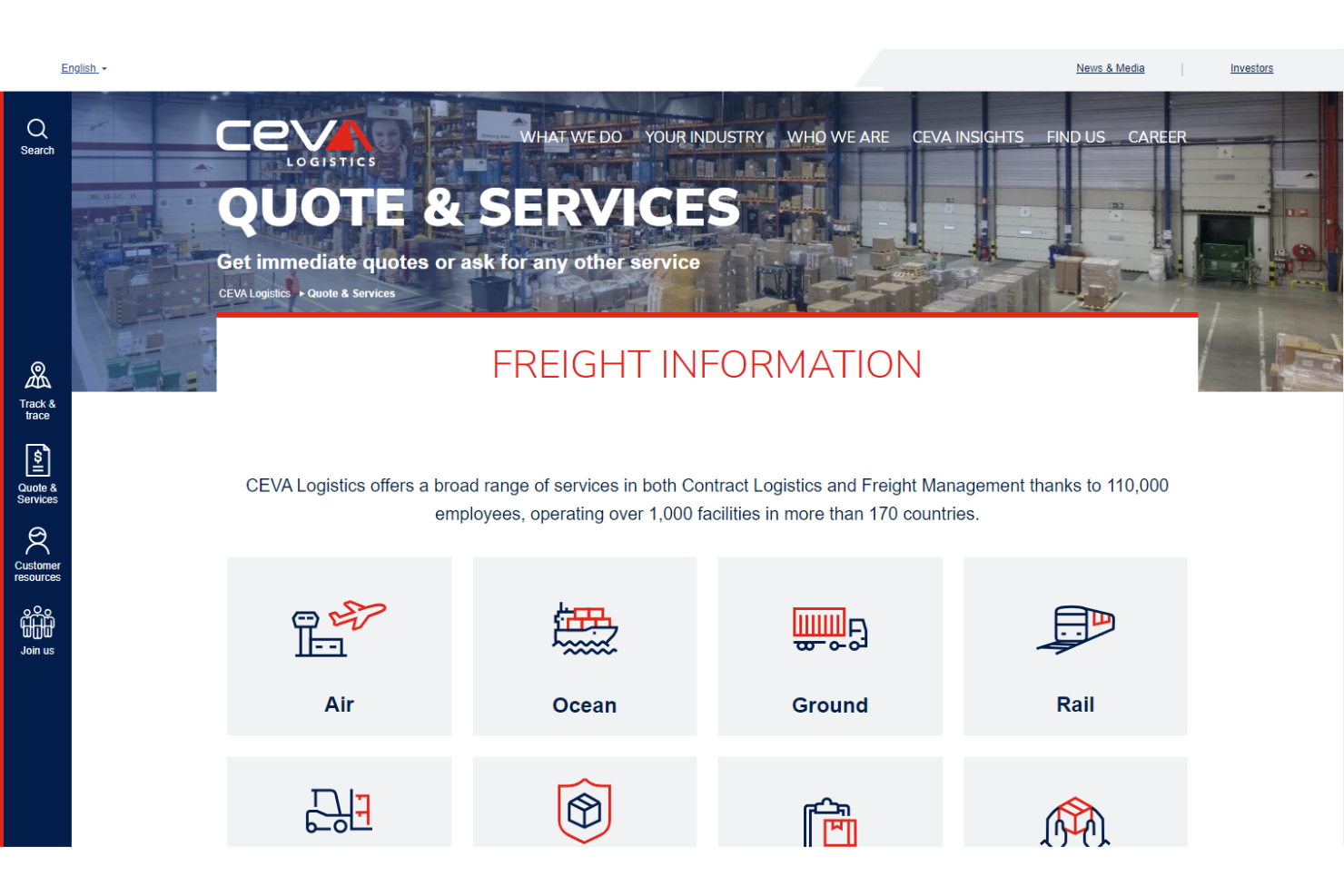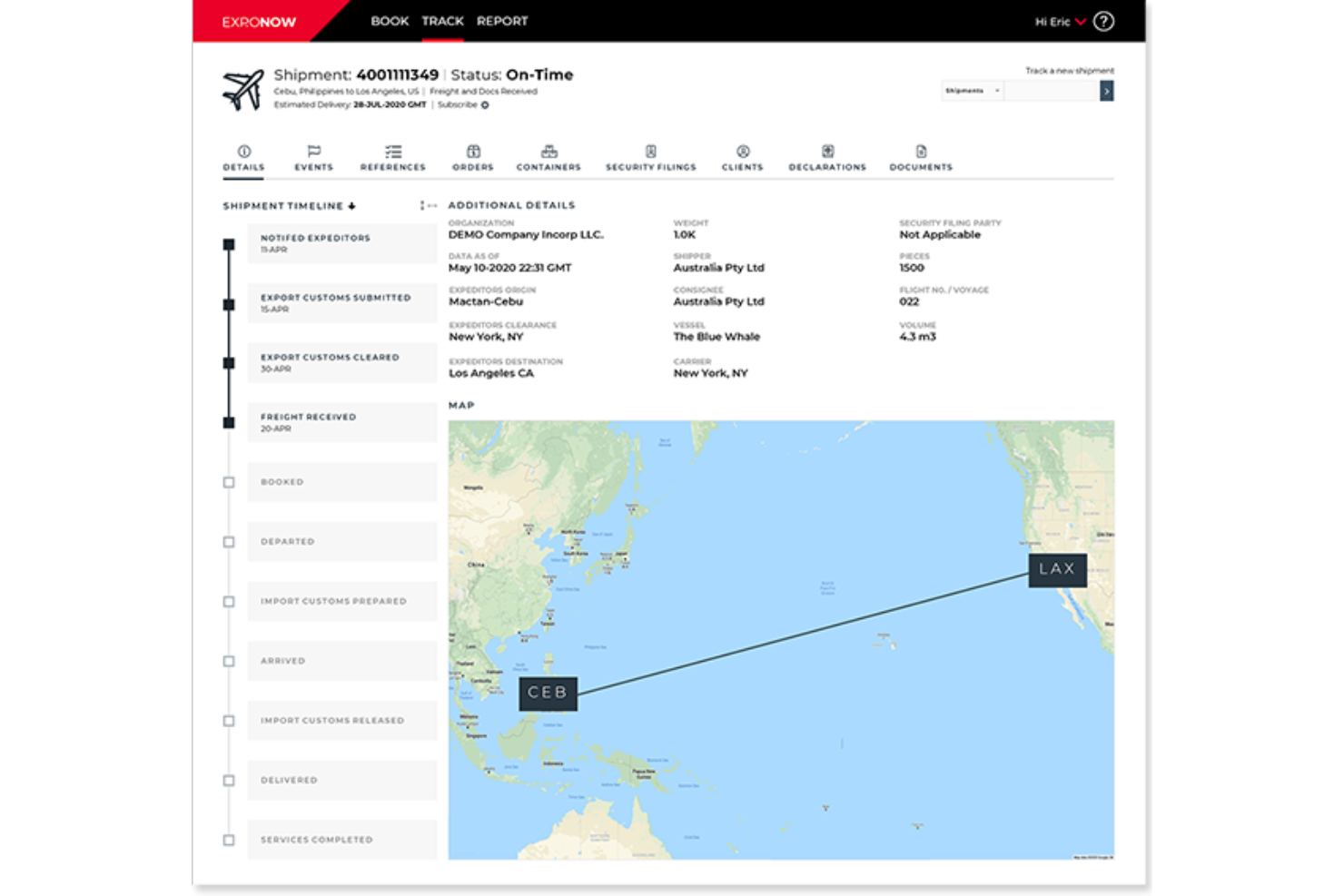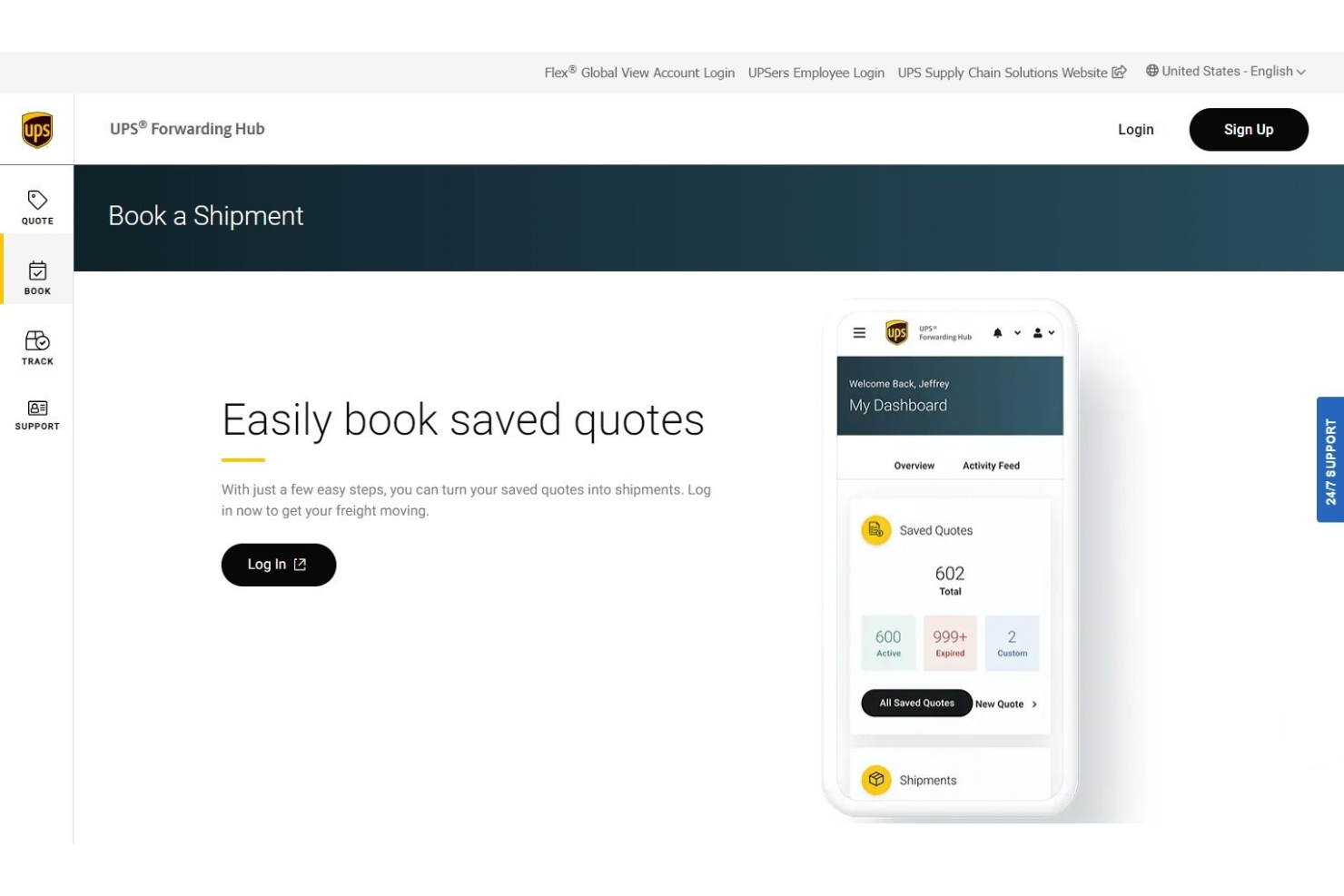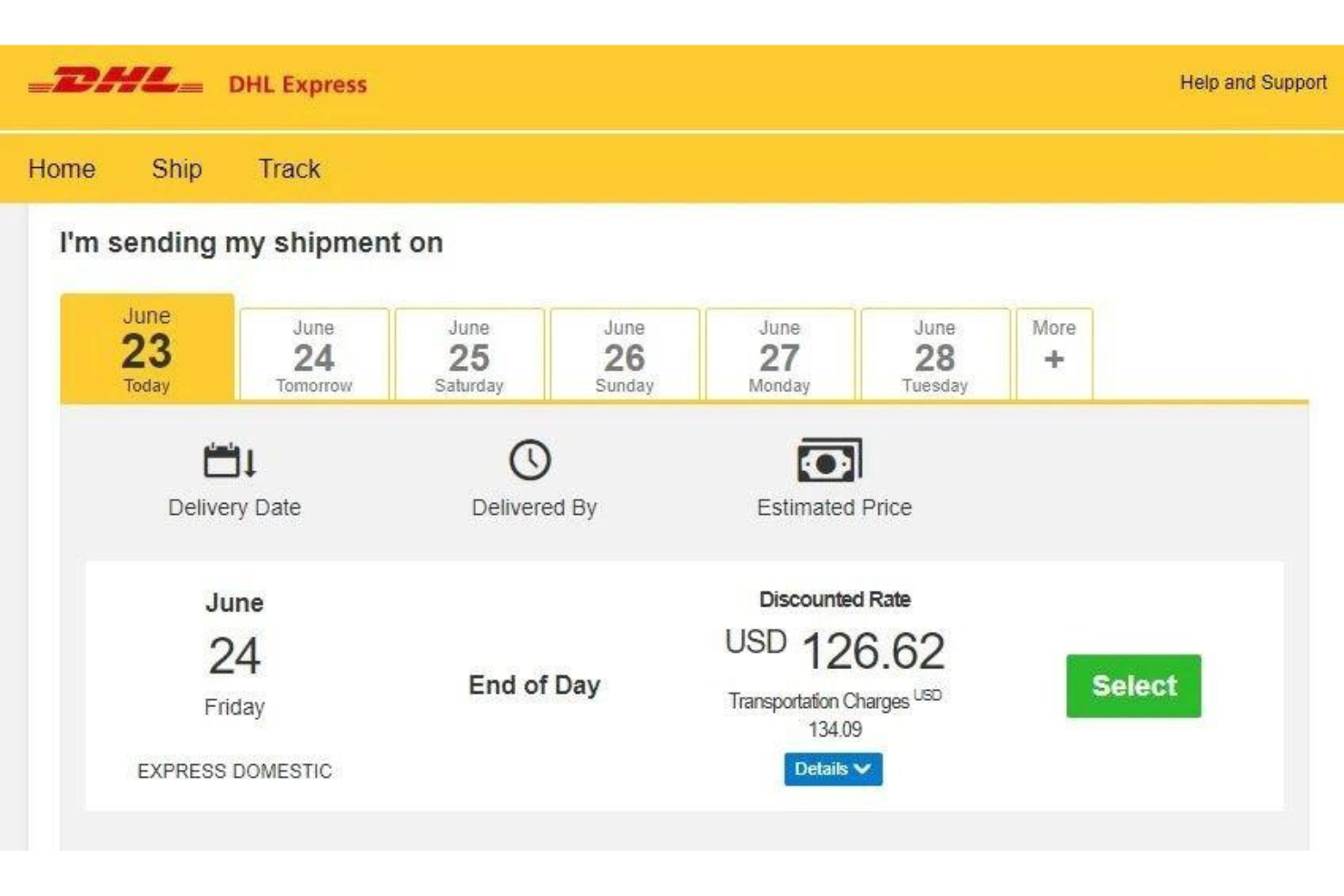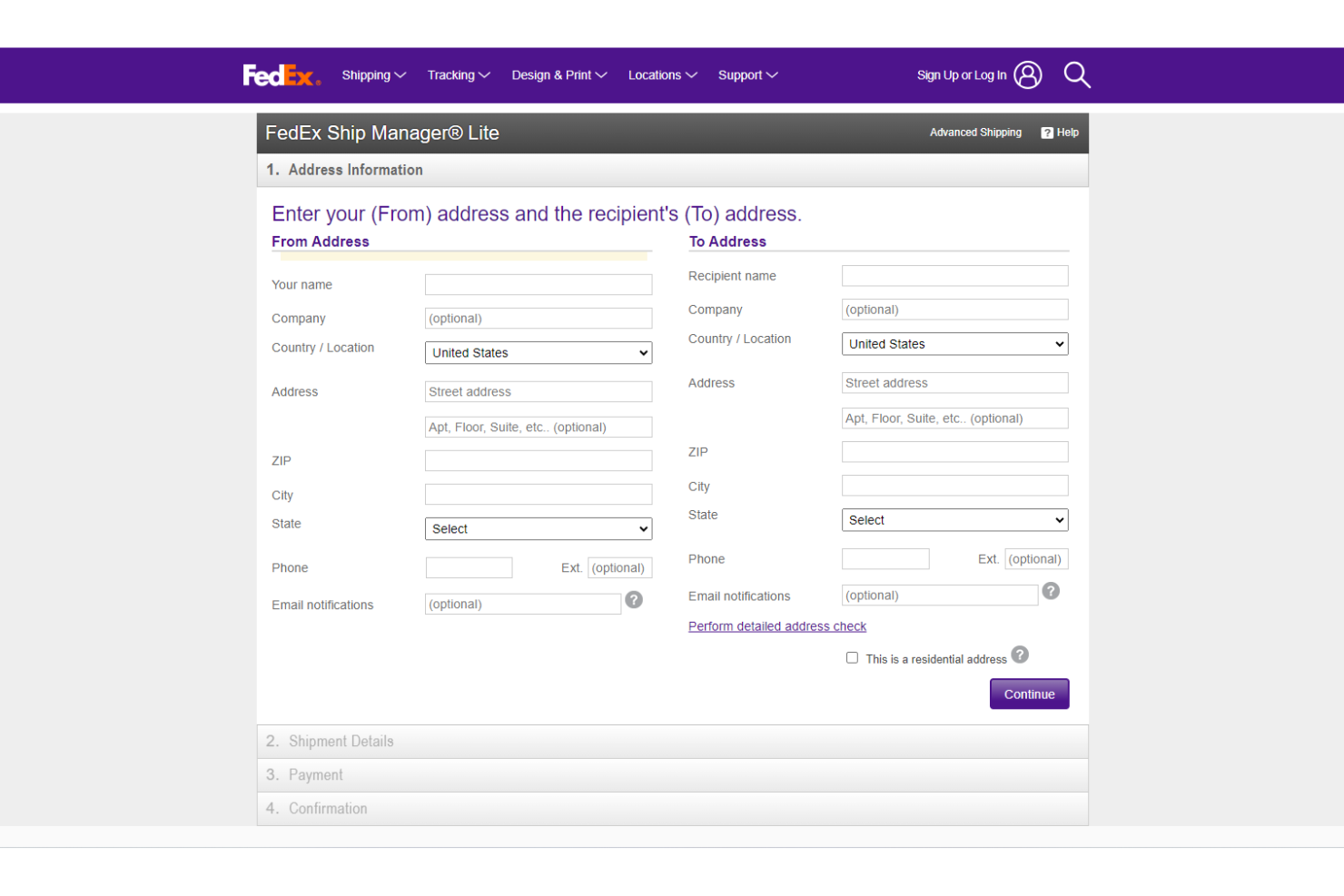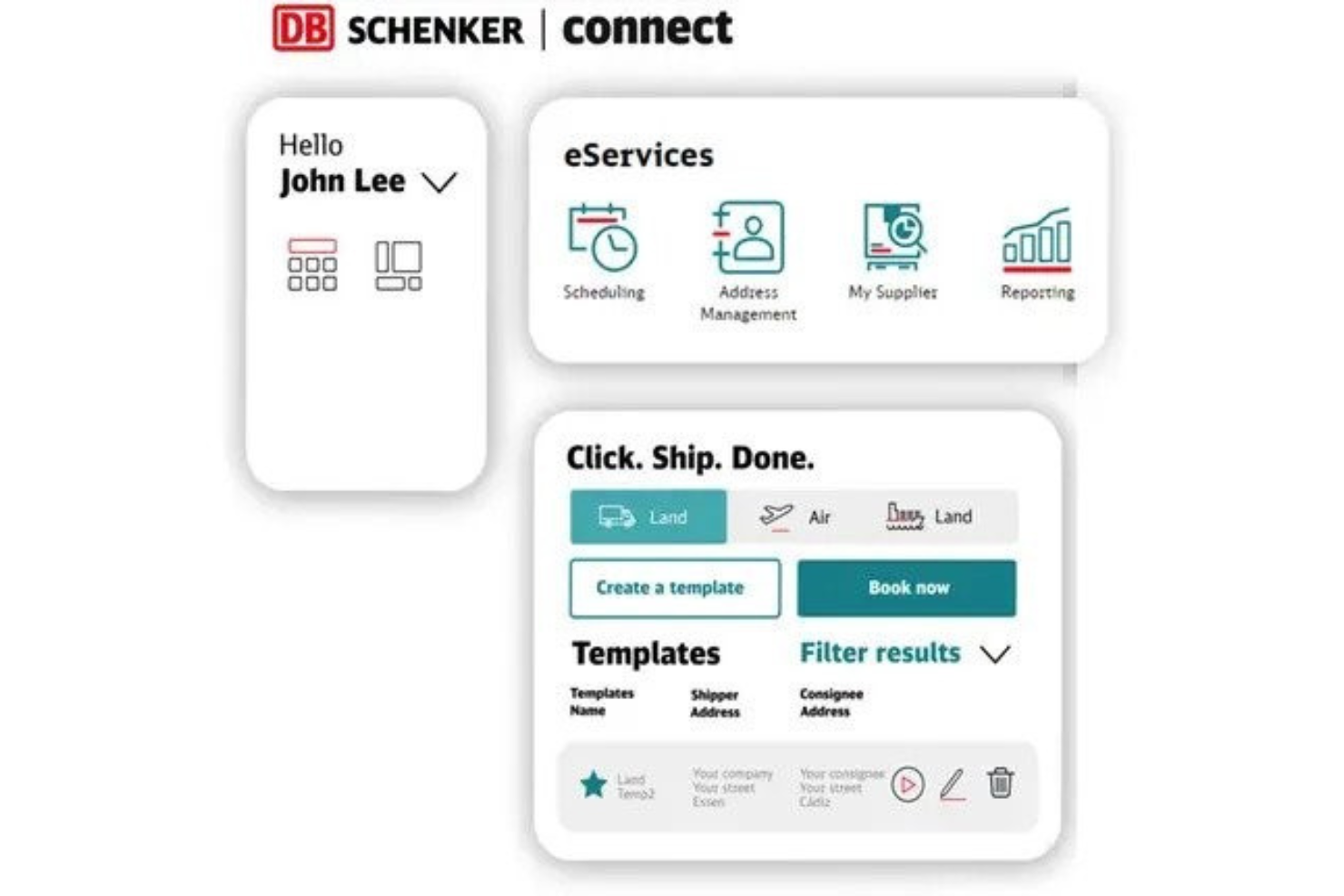The Top 10 3PL Companies for Ecommerce
Here we are, right up at the top with the 10 best ecommerce 3PL companies, with what each is ideal for.
Get free help from our service advisors to find your match.
3PL companies are your line in the sand between running a business and running yourself ragged.
I’ve managed warehouses, overseen international shipping, and kept inventory on a tight leash—so trust me when I say: handing off fulfillment to the right 3PL is how real operators scale.
Here’s what matters: the best 3PL companies keep your customers happy, your operations humming, and your focus where it belongs—on growth, not grunt work.
We’ve sifted through the noise and ranked the top players so you can skip the guesswork and get back to running a sharper, smarter business.
Why Trust Our 3PL Company Reviews
We’ve been testing and reviewing ecommerce software and services since 2021.
As ecommerce experts ourselves, we know how critical, and how difficult it is to make the right decision when selecting software.
We invest in deep research to help our audience make better software purchasing decisions.
We’ve tested more than 2,000 tools for different ecommerce use cases and written over 1,000 comprehensive software reviews. Learn how we stay transparent & our review methodology.
Comparing the Best 3PLs For Ecommerce
While the pricing comparison below may not be all that illuminating, given that pricing very much depends on your brand, the Compare Software button below that will give you much more to chew on.
| Service | Best For | Trial Info | Price | ||
|---|---|---|---|---|---|
| 1 | Best for eco-friendly delivery | Free consultation available on request | Pricing available upon request | Website | |
| 2 | Best for fast global fulfillment | Free demo avaialble | Pricing upon request | Website | |
| 3 | Best end-to-end freight management | Free demo | Pricing upon request | Website | |
| 4 | Best for shipping high-value products | Consultation available upon request | Pricing available upon request | Website | |
| 5 | Best for reverse logistics | Free demo | Pricing upon request | Website | |
| 6 | Best for managing supply chains | Free discovery call available | Pricing available upon request | Website | |
| 7 | Best for international deliveries | Trial information not available | Pricing available upon request | Website | |
| 8 | Best for large businesses | Free demo | Pricing upon request | Website | |
| 9 | Best for real-time GPS tracking | Free demo | Pricing upon request | Website | |
| 10 | Best for scaling shipping processes | Free demo | Pricing upon request | Website |
The 10 Best 3PL Companies, Reviewed
To help with your search, I put together these overviews of the best 3PL companies. Following these highlights will save you time, money, and stress during this process.
GoBolt is a sustainable third-party logistics provider focusing on fulfillment, last-mile delivery, and returns management.
Why I picked GoBolt: GoBolt's commitment to sustainability sets them apart in the 3PL industry. They utilize a fleet of electric vehicles for deliveries, helping you reduce your carbon footprint. Their route optimization further minimizes emissions, aligning with environmentally conscious business practices. Their real-time tracking technology provides transparency throughout the delivery process. This feature allows you and your customers to monitor shipments, enhancing the overall experience and building trust.
GoBolt Standout Services and Integrations
Standout services include a network of fulfillment centers across the U.S. and Canada, enabling you to scale your business efficiently. Their returns management simplifies the process by reviewing and processing returns according to your standard operating procedures, ensuring timely restocking and refunds. Additionally, GoBolt's warehouse management system integrates with your ecommerce platform or order management system.
Integrations include Shopify, Squarespace, Wix, BigCommerce, WooCommerce, ShipStation, Skubana, Loop Returns, Order Desk, Orderful, and Extensiv.
Pros and cons
Pros:
- Strong integration with ecommerce platforms
- Real-time updates and tracking
- Offers sustainable 3PL
Cons:
- Occasional delivery delays
- Limited to North America
ShipBob is a fulfillment service provider that offers a range of logistics solutions for e-commerce businesses.
Why I picked ShipBob: ShipBob provides a of fulfillment services that address various aspects of the e-commerce supply chain. These services include receiving and storing inventory, picking and packing orders, negotiating shipping rates, and managing expedited and standard deliveries. The company's distributed inventory capabilities also allow for strategic placement of goods across fulfillment centers, which can improve delivery times and reduce shipping costs.
ShipBob Standout Services and Integrations
Standout services include a Warehouse Management System (WMS) for businesses that have their own warehousing facilities but require advanced software to manage operations. ShipBob also offers a Managed Freight Program, which is designed to streamline the process of shipping inventory from manufacturers to ShipBob's fulfillment centers.
Integrations include Shopify, Klaviyo, Recharge, Amazon, BigCommerce, Ebay, Magento, Brightpearl, Yotpo, and Netsuite.
Pros and cons
Pros:
- Easy integration with ecommerce platforms
- 2-day delivery option
- Fast and accurate order fulfillment
Cons:
- Limitations for B2B and wholesale orders
- High shipping costs
CEVA Logistics offers an integrated, end-to-end freight management solution for ecommerce businesses. The company’s services allow merchants to get value across every stage of their supply chain.
CEVA Logistics: From inbound supplier management and warehousing to transport and customs services to reverse logistics, CEVA Logistics makes an entry on this list because of its end-to-end ecommerce solutions. CEVA Logistics does everything you need in one centralized location with a global presence to help ecommerce brands of all sizes. Your business can benefit from the company’s transportation networks, warehousing, freight station, and last-mile carrier networks to satisfy your customers.
CEVA Logistics Standout Services
Standout services include fiscal representation if you’re looking to target European customers by ensuring local VAT compliance. The company also provides project logistics services that allow you to create custom freight solutions to match your specific shipment needs.
Pros and cons
Pros:
- Helps businesses develop actionable insights
- Provides a scalable infrastructure
- Manages entire supply chains
Cons:
- Some delivery timing issues
- Customer support needs work
Expeditors International works well with ecommerce businesses that need a solution for shipping high-value products to customers.
Why I picked Expeditors International: I wanted to add Expeditors International to this article because of the company’s ability to handle high-value products when shipping to customers. The company uses proper protection with special white-glove treatment when sending these products. Expeditors International offers temperature-controlled delivery options if needed so that you can deliver products to any location.
Expeditors International Standout Services and Integrations
Standout services include built-in data analytics tools that offer the necessary information, including everything from the point of order to final delivery. Expeditors International also offers a Living Model service that creates a twin of your supply chain, allowing you to make decisions based on specific conditions.
Integrations include connections with internal business systems and service providers to help you share data with all stakeholders across your supply chain. The company does this through APIs, traditional EDI, and almost every other method available.
Pros and cons
Pros:
- Present in over 300 locations worldwide
- Same-day delivery options
- Bulk shipping capabilities
Cons:
- Pricing details aren’t transparent
- No native integrations
Ryder Supply Chain Solutions provides reliable reverse logistics capabilities to help ecommerce brands manage returns customers send to their stores.
Why I picked Ryder Supply Chain Solutions: Reverse fulfillment is an essential function for ecommerce businesses because it involves handling products that customers return to your store. So, I added Ryder Supply Chain Solutions because it can efficiently manage this process for your brand. The company provides multiple reverse logistics solutions that help your ecommerce business manage returns and get products back in your warehouse.
Ryder Supply Chain Solutions Standout Services and Integrations
Standout services include customs clearance functions that offer complete visibility into supply chains and compliance with trade regulations. The company also provides fleet management services to help those with private fleets manage them efficiently and enables access to various transportation solutions.
Integrations include connections with top business management systems via the RyderEcommerce platform. Through this system, you can connect Ryder to multiple business applications such as Brightpearl, Corso, Flexport, Gorgias, Klaviyo, Loop, Parcel Perform, Rebuy, Recharge, Returnly, and other software options.
Pros and cons
Pros:
- White-glove product delivery
- Custom warehousing solutions
- Sells and rents trucks
Cons:
- No temperature-controlled shipping
- Steep learning curve
UPS Supply Chain Solutions does more than ship packages to customers. The company offers logistics services that help online stores manage supply chains.
Why I picked UPS Supply Chain Solutions: I believe UPS Supply Chain deserves a spot on this list because of the company’s ability to provide value-added services that help your business manage supply chains. No matter the complexity of your supply chain, UPS Supply Chain Solutions has the capabilities to work closely with your business to help you manage goods flow from receiving to storage to order processing to product shipping. The company does this by offering a global network of distribution centers, technology, and logistics knowledge.
UPS Supply Chain Solutions Standout Services and Integrations
Standout services include insurance services to help protect shipments, your business’s reputation, and the bottom line by paying claims when needed. The company also acts as a customs brokerage partner for your business by helping you avoid clearance issues, customs complexities, and service interruptions.
Integrations include connections with various shipping management tools your business is likely already using to ship products to customers. These connections include links with third-party applications such as Agiliron, canary7, Cleo, ClickPost, Coyote Logistics, Docinfusion, IvyPanda, NetSuite, Shipster, Shiptheory, and other software options.
Pros and cons
Pros:
- Good customer support
- Excellent tracking features
- Ships free boxes and supplies
Cons:
- Steep learning curve
- Sometimes doesn’t honor shipping quotes
DHL Supply Chain is best known for helping ecommerce merchants with international delivery to any country worldwide.
Why I picked DHL Supply Chain: I wanted to start this list with DHL Supply Chain because of its ability to help you ship products anywhere around the world. DHL Supply Chain is an enormous global logistics organization with operations in over 220 countries and is an essential player in the international 3PL industry. The company collates all crucial logistics services, such as warehousing, transport, and management, in an elevated package and further helps simplify global logistics services and supplier administration and helps with customer touchpoint management.
DHL Supply Chain Standout Services and Integrations
Standout services include reverse logistics services that offer end-to-end processes such as returns management and product recalls. You’ll also have access to a warehouse management system that provides tools such as inventory control, automated replenishment, order optimization, cycle counting, and much more.
Integrations include native integrations to help your business handle ecommerce orders by connecting with popular ecommerce platforms and management tools. These integrations include Adobe Commerce, AfterShip, Malvern Systems, Pacejet, PrestaShop, ShipStation, ShipWorks, Shopify, Soapbox, WooCommerce, and other software options.
Pros and cons
Pros:
- Fast product delivery
- Immediate tracking details
- Easy shipment creation
Cons:
- Isn’t suitable for smaller businesses
- Sessions can expire quickly
FedEx Supply Chain is one of the major carriers in North America that owns and operates a network of warehouses to help large organizations quickly get orders to customers.
Why I picked FedEx Supply Chain: This company made this list because it offers the most diverse warehouse network fit for large ecommerce businesses. FedEx Supply Chain is a multinational 3PL company that can also help online stores via an integrated approach to distribution, fulfillment, packaging, returns, and more. FedEx Supply Chain can help you maximize supply chain visibility and control through warehouse management systems and automation.
FedEx Supply Chain Standout Services and Integrations
Standout services include supply chain consulting, where you’ll get help from FedEx experts who provide an impartial business evaluation and develop a growth plan. The company also offers transportation management services to free up your time and resources and reduce capacity shortages to ensure you meet business goals.
Integrations include optimizing shipping processes within your online store via a multichannel strategy that integrates returns and distribution centers. FedEx Supply Chain does this by providing an API that anyone with development expertise can use to integrate with your ecommerce platform.
Pros and cons
Pros:
- Helps identify and fix product issues
- Real-time location tracking
- Provides customized packaging
Cons:
- Some delivery issues
- Integrating with business systems is challenging
DB Schenker provides air, land, and sea logistics and helps ecommerce businesses ship products to almost 130 countries globally. Online merchants can get freight services for contract logistics, lead logistics, and unique products, along with real-time GPS shipment tracking.
Why I picked DB Schenker: When shipping products, especially large, expensive items, having advanced tracking capabilities can provide some piece of mind. So, I wanted to add DB Schenker to this article because of its real-time tracking tools. The company provides information about delivery time, shipment status, and location, and you can use the tracking number for every shipment to access this information without having to log into the customer portal.
DB Schenker Standout Services and Integrations
Standout services include intercontinental supply chain solutions that provide end-to-end visibility and enable inventory reduction for worldwide deliveries. The company also offers freight management solutions that provide a broad range of capabilities, such as air and ocean freight, transportation management, and customs clearance.
Integrations include connections with a few third-party applications to help you manage your processes and shipments. These include integrations with systems such as BaseLinker, Cleo, Ingrid, Mintsoft, Odoo, Salesforce, ShippyPro, Shopify, and Vonzu.
Pros and cons
Pros:
- Time-definite air freight services
- Temperature and humidity monitoring
- Customized statistics and reports
Cons:
- Customer support needs work
- Some notification issues
J.B. Hunt Transport Services helps growing ecommerce businesses scale by handling every shipment type and empowering merchants to customize solutions when necessary.
Why I picked J.B. Hunt Transport Services: When your business is ready to grow, you’ll need to work with a 3PL company that can handle your new needs. So, to help, I added J.B. Hunt Transport Services for your consideration because of its ability to help you deliver your products to customers. The company offers various freight modes for every shipment need, including less-than-truckload (LTL), intermodal, specialty shipments, and more.
J.B. Hunt Transport Services Standout Services
Standout services include dedicated contract services that consist of a dedicated fleet that ensures you always have the capacity to deliver products with branded equipment and drivers who wear your logo. The company also offers final mile services that deliver products directly to customers’ homes.
Pros and cons
Pros:
- Can handle complex supply chains
- Temperature-controlled shipping
- Works well with small businesses
Cons:
- Sometimes doesn’t provide precise delivery times
- Customer service needs work
Other Options
If you’ve been searching for new 3PL companies to work with for some time, you already know the vast number of options available. So, to make this list more beneficial for your needs, I wanted to add more 3PL options worth considering.
- C.H. Robinson
For shipping across railway networks
- Kuehne + Nagel
For combining sea and air logistics
- Penske Logistics
For optimizing supply chains
- XPO Logistics
Coast-to-coast network
- Lineage Logistics
For food supply chains.
- Kenco Group
3PL solutions tailored for ecommerce brands.
- GlobalTranz Enterprises
For innovative logistics technology.
- Coyote Logistics
For on-demand freight tracking.
- Americold
Temperature-controlled supply chain infrastructure.
- Maersk Logistics
Online shipments and logistics management solutions.
- DSV Panalpina
Self-service shipment management platform.
- Schneider National
Online shipping marketplace.
- Echo Global Logistics
For real-time shipping lifecycle visibility.
- Nippon Express
For customized logistics solutions.
- ArcBest
Tools for any supply chain structure.
Our Selection Criteria for Top 3PL Companies
Selecting the right 3PL software is crucial for optimizing your supply chain operations. With many options available, it's essential to evaluate 3PL solutions based on specific criteria to ensure they meet your business's unique needs.
Here's the framework we use:
Core 3PL functionality (25% of total weighting score)
To be considered among the best, a 3PL software must support essential use cases:
- Comprehensive warehouse management system (WMS) for inventory control and space optimization.
- Efficient order fulfillment processes, including processing, packing, and shipping.
- Integration of a robust transportation management system (TMS) for streamlined logistics.
- Real-time inventory tracking to monitor stock levels and movement.
- Detailed reporting and analytics capabilities to drive informed decision-making.
Additional standout features (25% of total weighting score)
Identifying standout 3PL software involves looking for:
- Seamless integration capabilities with ecommerce platforms and online marketplaces.
- Advanced real-time visibility and tracking of shipments to ensure transparency.
- Predictive analytics powered by AI and machine learning for demand forecasting.
- Customizable dashboards and KPI tracking for tailored business insights.
- Innovative tools like blockchain technology for secure and transparent transactions.
Usability (10% of total weighting score)
When evaluating usability, we consider:
- An intuitive user interface that simplifies navigation and reduces training time.
- Mobile accessibility to manage operations on-the-go.
- Customizable workflows to align with specific business processes.
- Drag-and-drop functionality for easy management of orders and tasks.
- Clear and concise data visualization to quickly interpret key metrics.
Onboarding (10% of total weighting score)
For onboarding, essential aspects include:
- Comprehensive training materials, including guides, tutorials, and FAQs.
- A guided setup process to streamline initial configuration.
- Assistance with data migration from legacy systems to ensure smooth transitions.
- Personalized onboarding support from dedicated specialists for a tailored experience.
- Regular check-ins during the implementation phase to address any issues.
Customer support (10% of total weighting score)
Effective customer support is evaluated by:
- Availability of 24/7 support through multiple channels, such as phone, email, and chat.
- Knowledgeable support staff with expertise in 3PL operations to provide relevant assistance.
- Proactive issue resolution and continuous system monitoring.
- Regular software updates and bug fixes to maintain smooth operations.
- Access to a community forum or knowledge base for peer support and shared insights.
Value for money (10% of total weighting score)
Assessing value for money involves looking at:
- Transparent pricing structures with no hidden fees.
- Scalable pricing options that grow with your business.
- Strong ROI potential based on efficiency gains and feature offerings.
- Competitive pricing compared to similar 3PL software solutions.
- Flexible contract terms and easy cancellation policies to reduce risk.
Customer reviews (10% of total weighting score)
In evaluating customer reviews, focus is placed on:
- Stories of successful integrations and effective use of 3PL features to solve business challenges.
- Overall satisfaction ratings from current users reflecting ease of use and functionality.
- Specific feedback on the quality of customer support and training experiences.
- Reports of tangible benefits and ROI from implementing the software.
- Long-term user experiences and loyalty to the product, indicating sustained value.
What is a 3PL Company?
A 3PL company is a third-party logistics provider that takes warehousing, inventory, fulfillment, and shipping off your plate—so you can actually focus on running your business.
The best 3PL companies negotiate freight rates, optimize packaging, and give you the data you need to cut costs and speed up delivery.
Retailers and brands use 3PL companies to scale without hiring an army or renting more storage space. Whether you need cold storage, specialized handling, or international shipping, a solid 3PL partner keeps your operations tight and your customers happy.
In short: they handle the logistics grind, you get your evenings back.
How to Choose 3PL Companies
Choosing a 3PL company shouldn’t feel like a leap of faith. You want a partner who can handle your chaos, scale with your ambitions, and keep your ops running smooth—without the smoke and mirrors.
Here’s how seasoned operators make the call, step by step.
| Step | What to do | What to ask or watch out for |
|---|---|---|
| Define your real needs | List your order volumes, product types, seasonality, and any must-haves (cold storage, kitting). | “Can you actually keep up with my order spikes and product quirks?” |
| Pressure-test their tech | Make sure their WMS and integrations work with your stack—no excuses. | “Show me your system live—how does it handle my actual workflow?” |
| Demand a full pricing breakdown | Get every fee in writing—storage, pick/pack, returns, all of it. Don’t accept hand-waving. | “What’s included, what’s extra, and what’s going to surprise me?” |
| Check their scalability in practice | Ask for proof: how do they handle growth, launches, and sudden volume jumps? | “Tell me about a client who scaled—what broke, what worked?” |
| Validate their industry experience | They should know your product category inside out—no learning on your dime. | “Who else like me have you worked with, and what went sideways?” |
| Audit their warehouse network | Are their fulfillment centers where your customers are? Can they hit your shipping promises? | “What percent of my orders will make two-day ground shipping?” |
| Test customer support and onboarding | Call their support, ask about onboarding, and check real reviews for red flags. | “Who’s my go-to when stuff hits the fan? How fast do you respond?” |
| Look for value-added extras | Don’t settle for basic. Push for returns, custom packaging, real reporting, and more. | “What extras do you offer that will actually move the needle?” |
Trends for 3PL Companies in 2025
The logistics world is moving fast, and staying ahead means keeping up with these trends shaping 2025:
- Tech is taking over. AI, machine learning, and IoT are no longer just buzzwords—they’re transforming 3PL operations. From predicting demand to optimizing delivery routes, these tools make logistics smarter, faster, and more reliable. IoT sensors are also giving real-time shipment updates, so no more “where’s my package” panic.
- Green logistics is the new standard. Customers and regulators alike are demanding eco-friendly operations. 3PLs are stepping up with electric delivery trucks, energy-efficient warehouses, and carbon offset programs. Saving the planet while saving costs? Win-win.
- Last-mile delivery gets creative. With ecommerce booming, the final stretch of delivery is where it’s at. Think drones, robots, and even crowdsourced delivery networks. It’s all about getting packages to doorsteps faster and with fewer headaches.
- Data rules everything. Predictive analytics and real-time monitoring are helping 3PLs plan better, cut costs, and avoid hiccups. Whether it’s optimizing warehouse layouts or catching delivery delays before they happen, data is the secret sauce to seamless logistics.
- Customers want it their way. Personalized logistics is the name of the game. 3PLs are offering tailored shipping options, better tracking transparency, and flexible services to keep clients happy and loyal.
- Regional logistics make a comeback. Global supply chain issues are pushing companies to rethink their strategies. Nearshoring and regionalized networks are becoming the go-to for faster, more reliable delivery.
- Omnichannel fulfillment takes center stage. The ecommerce explosion isn’t slowing down, and 3PLs are expanding their networks to handle inventory and fulfill orders across multiple channels. Automation is leading the charge to make it all happen smoothly.
Keeping pace with these trends will help your logistics game stay sharp and ready to meet customer demands head-on.
3PL vs freight broker: What's the difference?
While 3PLs and freight brokers both facilitate shipping, they serve different roles in the supply chain.
- 3PLs provide end-to-end logistics solutions. They manage warehousing, fulfillment, transportation, and supply chain planning, acting as a full-service logistics partner.
- Freight brokers connect shippers with carriers. They don’t own warehouses or fleets but instead negotiate and coordinate freight movement between businesses and trucking companies.
- 3PLs offer long-term partnerships. They handle ongoing logistics needs, optimize supply chains, and provide value-added services like inventory management and returns processing.
- Freight brokers focus on single shipments. Their expertise lies in securing the best carrier rates for specific freight loads, making them ideal for businesses with occasional shipping needs.
If you need a full-scale logistics partner, a 3PL is the way to go. If you just need help finding the best carrier for a one-off shipment, a freight broker can get the job done.
Key Features & Functions of 3PL Companies
When it comes to picking the right 3PL, it’s all about the features that keep your logistics running smoother than a same-day delivery.
- Comprehensive supply chain management. A great 3PL doesn’t just move boxes—it handles transportation, warehousing, packing, and strategic planning to streamline your entire supply chain.
- Warehouse management systems (WMS). Say goodbye to inventory guesswork. Advanced WMS tools automate tracking, optimize storage, and provide real-time insights into stock levels and shipments.
- End-to-end visibility. Customers hate being left in the dark—and so do you. The best 3PLs offer real-time tracking tools that keep everyone updated on shipment status, reducing “where’s my package” anxiety.
- Ecommerce platform integration. A top-tier 3PL should seamlessly sync with Shopify, WooCommerce, Amazon, or other platforms, ensuring orders flow from checkout to delivery without a hitch.
- Flexible, customizable solutions. Need kitting, custom packaging, or handling for fragile and oversized items? The best 3PLs adapt to your business needs, not the other way around.
- Scalable networks. A robust 3PL grows with you, offering strategically located fulfillment centers to cut shipping costs and speed up delivery times.
- Freight rate optimization. The right 3PL negotiates competitive freight rates, reducing your overall logistics expenses while ensuring efficient shipping.
- Smart analytics. Data is your logistics BFF. A great 3PL uses AI-driven analytics to forecast demand, optimize routes, and uncover cost-saving opportunities.
- Sustainability efforts. Eco-friendly shipping options, sustainable packaging, and energy-efficient facilities help you meet sustainability goals while enhancing your brand image.
- Reverse logistics. Returns happen—make them painless. A strong 3PL has efficient systems for handling returns, ensuring a smooth customer experience.
With these features, a 3PL isn’t just a service—it’s your logistics ace in the hole, helping you deliver for your customers and your bottom line.
Benefits of 3PL Companies
A 3PL isn’t just about shipping—it’s about making logistics work smarter, not harder. Here’s why outsourcing can transform your business:
- Lower costs without cutting corners. Managing warehouses and transportation isn’t cheap. A 3PL spreads expenses across clients, giving you access to top-tier logistics without the hefty overhead.
- Expand without the headaches. Whether you're dealing with seasonal spikes or launching new products, a 3PL has the network and systems to scale up or down as needed.
- Smarter logistics through technology. Real-time tracking, automated warehouses, and AI-driven forecasting keep your inventory moving efficiently and your customers informed.
- Speed matters. A strong fulfillment network means two-day (or faster) shipping isn’t just possible—it’s the standard. Faster deliveries mean fewer abandoned carts and happier customers.
- Seamless returns. A 3PL with solid reverse logistics makes returns quick and painless, improving retention and reducing support headaches.
- Industry-specific solutions. Need cold storage? Custom kitting? Heavy freight handling? The right 3PL isn’t one-size-fits-all—it’s built to support your business model.
- Sustainability that works. Many 3PLs now offer eco-friendly shipping, energy-efficient warehouses, and sustainable packaging to align with consumer expectations and reduce your footprint.
- More time for what matters. Offloading logistics means you can focus on product development, marketing, and customer experience instead of supply chain chaos.
A 3PL isn’t just a service—it’s a competitive edge. The right partner helps you move faster, spend smarter, and keep customers coming back.
Costs & Pricing of 3PL Companies
Selecting the right 3PL plan is crucial for balancing efficiency and cost-effectiveness. Here's a breakdown of typical pricing tiers and their offerings:
| Plan Type | Average Price | Common Features | Best For |
|---|---|---|---|
| Starter Plan | $100 – $500/month | Up to 500 orders per month, basic inventory management, standard reporting, email support, integration with major ecommerce platforms | Small businesses with low order volumes |
| Business Plan | $500 – $2,000/month | Up to 5,000 orders per month, advanced inventory management, multiple warehouse locations, priority support, advanced reporting and analytics, API access | Growing businesses needing scalable solutions |
| Enterprise Plan | $2,000+/month | Unlimited orders, custom integrations, dedicated account manager, advanced forecasting, multi-channel fulfillment, custom reporting, SLA guarantees | Large businesses with complex logistics needs |
Additional considerations
- Hidden costs. Be aware of potential extra fees such as setup charges, storage fees, and shipping costs. It's essential to request a detailed breakdown from your 3PL provider to avoid surprises.
- Choosing the right provider. Evaluate factors like the provider’s technology compatibility with your systems, their scalability to grow with your business, and the level of customer service they offer.
Practical example
A small boutique selling handmade jewelry might start with the Starter Plan, while a growing fashion brand with seasonal peaks might find the Business Plan more fitting.
Large ecommerce platforms handling thousands of orders daily would benefit from the comprehensive services of the Enterprise Plan.
By carefully assessing your business needs and asking the right questions, you can select a 3PL plan that not only fits your current requirements but also supports your growth ambitions.
3PL Companies FAQs
When talking 3PLs, there are always more questions. While many of them can be answered by the companies themselves during the investigation phase, we’ll do our best to answer some here.
How do 3PLs handle reverse logistics and returns management?
Returns are a fact of life in ecommerce, and 3PLs make the process less of a headache. They handle everything from receiving and inspecting returned items to sorting them based on condition.
Many will refurbish or repackage products when possible, and dispose of unsalvageable items in eco-friendly ways.
Top 3PLs also use specialized software to streamline reverse logistics, giving real-time updates to retailers and customers. Some even provide data analysis to help you spot trends and reduce return rates over time.
What technological advancements are leading 3PL companies implementing to improve their services?
3PLs are diving into cutting-edge tech to keep up with growing demands. Think Artificial Intelligence (AI) for predicting demand and optimizing delivery routes, Internet of Things (IoT) devices for live tracking, and Robotic Process Automation (RPA) to speed up repetitive tasks in warehouses.
They’re also exploring blockchain for better transparency in the supply chain, cloud platforms for seamless collaboration, and even autonomous vehicles and drones to level up last-mile delivery.
Can 3PLs help with international shipping and customs clearance?
Absolutely. Many 3PLs specialize in international logistics, taking on the nitty-gritty of customs clearance, documentation, and compliance with trade regulations.
They often have dedicated compliance teams and software to ensure your shipments meet legal requirements, making global expansion less daunting and more efficient.
How do I know if my business is ready for a 3PL?
If your time is eaten up by logistics instead of growing your business, it’s probably time for a 3PL. Signs include struggling with order volume, delays in shipping, and storage costs eating into profits.
A 3PL can handle these pain points, so you can focus on scaling, improving customer experiences, and building your brand.
What industries benefit the most from using a 3PL?
Ecommerce brands often top the list, especially those needing fast fulfillment or handling high returns. Retail businesses, healthcare providers with temperature-sensitive shipments, and manufacturers juggling complex supply chains also see major benefits.
Basically, any industry that needs speed, scale, and efficiency can win big with the right 3PL partner.
What are the biggest challenges when working with a 3PL?
It’s not all smooth sailing. Challenges include lack of control over daily logistics, potential service delays, and data integration issues.
The fix? Vet your 3PL thoroughly, communicate your needs clearly, and ensure their tech integrates seamlessly with yours. A solid partnership can solve most of these hiccups.
Other Ecommerce Service Reviews
You can read the following company comparisons for more in-depth reviews of similar logistics and fulfillment services.
Outsource Fulfillment to Scale Your Brand
You're here because you need an expert solution for warehousing and fulfilling your orders. You are ready to stop storing and shipping everything yourself, and you found us.
Lucky you! In the services on this page (and especially the top 10), you'll find what you are looking for, thus simplifying your life and growing your brand. Glad we could help!
Retail never stands still—and neither should you. Subscribe to our newsletter for the latest insights, strategies, and career resources from top retail leaders shaping the industry.
